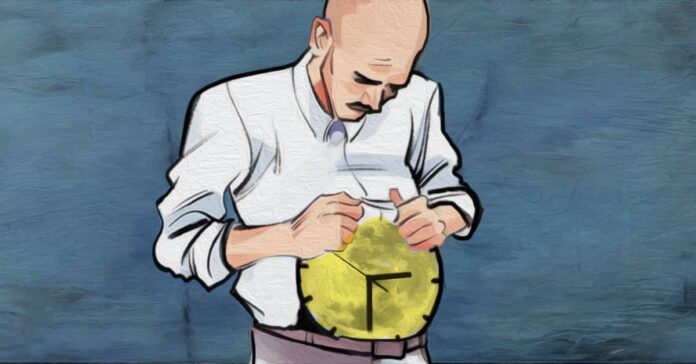For most people, going without food for more than a day or two can have serious repercussions on their body and mind. But there are some who can go without food indefinitely. Here’s how long people can go without food, depending on factors like physical activity level. When it comes to how long you can go without food, the answer isn’t as straightforward as you might think.
For starters, your body’s need for food varies depending on your activity level, metabolic rate, and more factors that even researchers don’t fully understand yet. In addition, we all have different tolerances for hunger and different levels of willpower when it comes to avoiding food when we’re hungry. Even our eating habits play a role in how long we can go without food before reaching our breaking point.
How Does Your Body Break Down Food?
The body digests food in a cycle that lasts about an hour. The process of breaking down food into energy is called digestion, and it includes three major steps: chewing, salivating, and swallowing; stomach-acid secretion; and finally peristalsis, or muscular contractions that push food through your small intestine. During these digestive processes, two types of nutrients are absorbed from foods: carbohydrates and proteins. Sugars are broken down into simple sugars like glucose by enzymes in your saliva, which provides them with nutrients for short-term use.
Why Do We Need To Eat In The First Place?
There are a few reasons we need to eat food. First, eating is one of our primary ways of acquiring energy. Simply put, food provides fuel for your body and brain. Eating also helps regulate our internal processes, such as digestion and hormone production. Lastly, eating regulates your moods and keeps you well-nourished so that you can perform at a high level.
What Happens When You Don’t Eat For A Day?
When you eat, your body uses calories to digest and metabolize that food. The number of calories you burn in a day is determined by a variety of factors: height, weight, gender, age, level of activity, and even hormone levels. You can eat more than you burn that’s why so many people gain weight over time. But when you stop eating altogether even for one day your body uses its fat stores to provide energy instead. If your calorie intake equals your calorie expenditure over several days or weeks, then your body will begin to use lean tissue for energy as well.
What Are Some Signs That You Are Starving?
When your body is at its normal level of activity, it burns a certain number of calories every day. But if you’re inactive, that number goes down. If you don’t replace those calories by eating food, your body begins to use up its stored energy or fat to keep working. This can cause some noticeable changes in your body, such as decreased energy and trouble thinking clearly. Within 24 hours without food, ketone bodies can build up in your blood and urine.
When Should I Panic About Not Eating Enough?
Most people won’t starve to death from going without food for a day or two. There is one group of people, however, that shouldn’t go long periods without eating: Children and teens. These folks have an especially high energy requirement and may not have developed healthy eating habits: by skipping meals, they are at risk of becoming malnourished or even starving. For these individuals, it’s best to allow regular snacking if that means three small meals a day instead of two large ones, so be it. Adults in good health who eat plenty throughout their life should be able to last at least three days without food.
Who Should Be Worried About Not Eating Enough?
Lots of us don’t eat enough. It’s been proven that, on average, Americans consume 100 fewer calories a day than we did in 1970. Yet, despite eating less and exercising more, we aren’t thinner or healthier. Clearly something is wrong: The combination of less calories and more exercise should have resulted in weight loss for Americans overall, instead it has led to weight gain. So why are so many of us overweight or obese? We know that being overweight can have significant health effects but being underweight can have health consequences as well.
Conclusion
When you’re used to being active and regularly engaging in healthy behaviors, it’s easier to go without food. To put it simply, there is a clear correlation between physical activity and hunger the more active you are, the less likely you are to feel hungry throughout your day. Remember that feeling hungry isn’t bad, we need hunger signals in order to know when our bodies need fuel. Rather than trying to push through your hunger with willpower alone, try engaging in an activity that can help take your mind off of cravings! Catching up with friends over lunch or planning an exciting weekend hike may be just what you need to distract yourself from that growling stomach.


